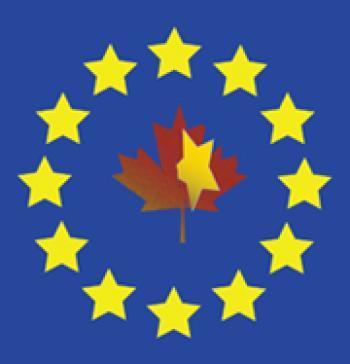Canada’s biggest business lobby groups, including the Canadian Council of Chief Executives, Canadian Chamber of Commerce and Canadian Manufacturers and Exporters, have sent a joint letter to International Trade Minister Ed Fast supporting the now four-year-old Canada-EU free trade negotiations, which the groups say should be the government’s top priority until the deal is done.
“As associations representing businesses of all sizes with significant interests in the EU market, you can count on our full support as you seek to finalize a balanced agreement that benefits Canadian businesses, workers and communities in all regions and sectors of Canada’s economy,” concludes the letter. (Until recently, business support for CETA has come mainly from Rx&D and the affiliated Canada-Europe Round Table for Business, both of which represent as many European as Canadian firms.)
But the Canadian Press reports, “Opponents of a Canada-EU trade and investment agreement are also galvanizing forces… On Monday, Canadian civil society groups wrote French Prime Minister Jean-Marc Ayrault, who is visiting Canada, to express their opposition with a special emphasis against the investor protection chapter, which allows firms to sue governments over restrictive policies.”
The CP article quotes unnamed business insiders suggesting “there is real concern that negotiators have taken the talks about as far as they can go, and that it’s now time for political leaders to make the needed decisions.” The source says, “We want to give groundcover to the politicians so they can then make some brave decisions.”
Are we still talking about a trade deal? It sounds like someone’s preparing an invasion.
To the extent that CETA, like other next-generation trade and investment deals, will further handcuff governments where it comes to economic governance, there’s some probably (hopefully) unintentional truth to that metaphor. In this case, the “brave decisions” these business lobbyists expect the government to make involve, among other things, extending patent and other monopoly rights to pharmaceutical, entertainment and biotech companies.
And here’s where the French Prime Minister might come in handy for these companies and European negotiators. On his first official visit to Canada, Mr. Ayrault is expected to meet with Prime Minister Harper, Quebec Premier Pauline Marois, and Ontario Premier Kathleen Wynne. He might not be wearing a Sanofi-Aventis button on his lapel but government support for one of France’s pharmaceutical champions is steadfast no matter who is in power.
On a recent Trade Justice Network delegation to France and Belgium that I was a part of, French government officials were clear they expect Canada to make concessions on drugs. In return, the French PM may suggest to Canadian leaders this week that France is willing to give Canadian meat producers that sliver of new market access they’re looking for. Ayrault might be here to provide ground beef cover, in other words.
To read the Trade Justice Network and RQIC press release on their joint letter to Prime Minister Ayrault, click here. To ask Prime Minister Harper to just walk away from CETA, use our action alert here.



